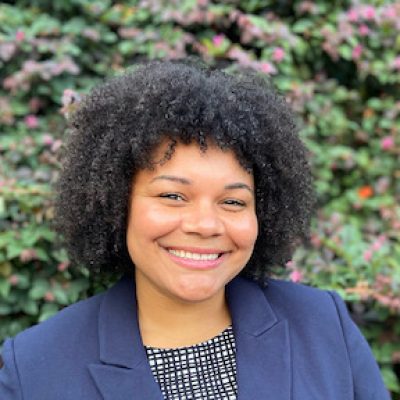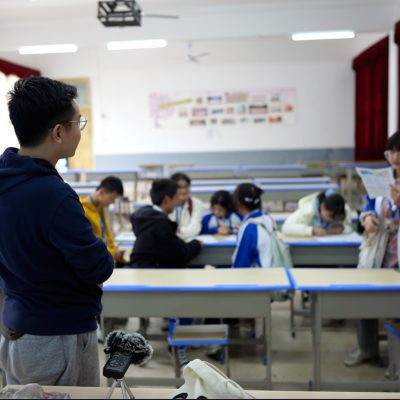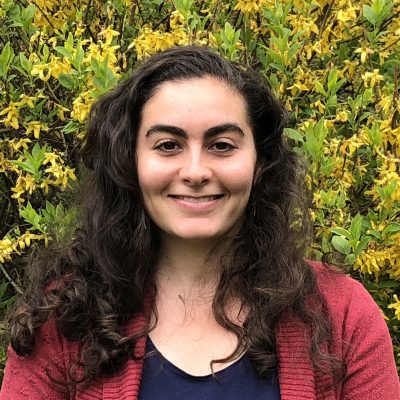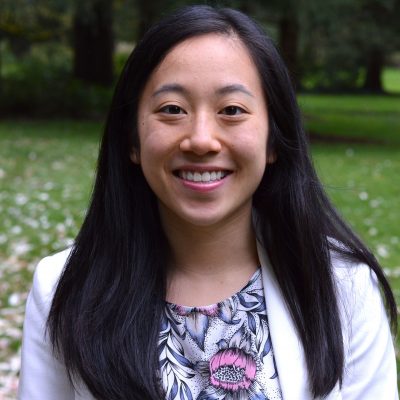Article
Senior Fellow Allie Dyer’s Action Project “Ancestral Wholeness” addresses the ongoing wake(s) of past and present mass trauma, and specifically the historical trauma of Black individuals in Portland, Oregon.
Traditional healers within some Afro-Diasporic knowledge systems have recognized the importance of histories of violence on the health of (and present health disparity within) our own Black communities and have cultivated cultural healing technologies toward this end.
Though lineages to this traditional medicine have been broken for many of those in the African Diaspora today, they are not lost. Amidst ongoing violence and racism, this project aspired to meet the need for trans-disciplinary healing spaces that speak to present traumas in the context of these living histories and integrate trauma physiology and epigenetics with our own cultural medical frameworks.
To help fund the project, Allie applied and received the 2021 Racial Equity Grant. The Racial Equity Grant funding was allocated to the facilitator stipends, as paying Black healer-educators for their knowledge and facilitation was paramount.
This project aspired to meet the need for transdisciplinary healing spaces that speak to present traumas in the context of these living histories and integrate trauma physiology and epigenetics with our own cultural medical frameworks.
Project Development
The Ancestral Wholeness group intervention was originally co-developed and virtually piloted in early 2021 with traditional healers and includes education around historical trauma, trauma physiology, as well as teachings on and engagement with indigenous Afro-Diasporic conceptualizations of this trauma and traditional practices of healing. This curriculum was further developed, with incorporation of prior participant feedback during this grant cycle. The project had a total of four co-facilitators planning the workshop, each of us dedicating approximately 40 hours of zoom planning meetings together in addition to individualized work beyond these meetings.
The group intervention itself was held in March 2022, spanned the course of 12 hours and included pre and post-workshop meetings with participants. Due to COVID-19 limitations and airline cancellations, only a total of 7 participants were able to be present for the weekend workshop despite significant interest leading up to the workshop. Of those that participated, African American, Afro-Caribbean, and East African backgrounds were represented. Activities of the workshop included a combination of large and small group lectures, discussions, and exercises. The workshop commenced with a final culturally-rooted group exercise led by the traditional healer aimed at addressing historical trauma.
Participants noted that being able to learn tangible tools rooted in African ancestral traditions as well as having lectures on biomedical understandings of trauma physiology was meaningful for them. Similar to participants of the first workshop completed in the spring of 2021, participants of the most recent and expanded workshop described kinship and belonging as a significant impact.
Next Steps
This pilot workshop continues to show promise in addressing historical trauma in culturally-rooted and integrative ways. Ongoing feedback has demonstrated that the group-centered kinship nature of the workshop, the integrative nature with both biomedical and traditional African and Diasporic teachings, and dedicated time to practice with cultural tools together were aspects that were impactful.
Future workshops should continue to be in person and allow for a significant amount of practice time with varying cultural healing tools and include diverse perspectives of Black and/or African healing practitioners.
The fact that participants all expressed a desire for further support after the group intervention may suggest that individual workshops may be inadequate to address longitudinal needs related to historical trauma. Given this feedback, co-facilitators plan to reflect on ways to address this need in future iterations including the possibility of cohort or series models.
Updated September 2022




